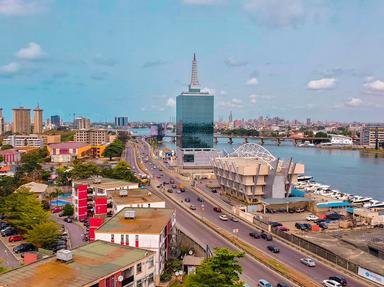Quiz Answer Key and Fun Facts
1. The national anthem of Nigeria has been "Arise, O Compatriots" since 1978. What was the previous national anthem?
2. Which early civilisation in what is now central Nigeria was the first in the region to make and use iron tools, and are thought to be the first Sub-Saharan people to make intricate and life-size terracotta statues?
3. Lagos, which had been the capital of colonial Nigeria since 1914 and following independence, was replaced by a new capital in a purpose-built city in 1991. What is the name of this city, situated in the centre of Nigeria north of the junction of the great Niger and Benue rivers?
4. Nigeria is a country which has experienced considerable ethnic conflict, leading to a post-independence civil war (the Biafran war) in the 1960s. What is the dominant ethnic group in the northern part of Nigeria?
5. Nigeria's largest city and financial centre remains Lagos - the name given to the city by Portuguese settlers. What was the original name of the settlement on which Lagos was built, and by which the city is still known to its majority Yoruba population?
6. The Federal Republic of Nigeria comprises 36 states as well as the Federal Capital Territory, Abuja. The creation of the states has been one approach taken by government to reduce regional ethnic loyalties. Which of these states has a border with neighbouring Chad?
7. The physical geography of Nigeria consists for the most part of river plains, mangrove swamps, rainforest and grasslands. The exception is the eastern border where there are several mountain ranges. What is the highest point in Nigeria?
8. Nigeria is one of Africa's major economies and has financed major infrastructural development since the 'boom' of the 1970s. Which economic activity accounted for 40% of Nigeria's Gross Domestic Product (GDP) in the first decade of the 21st century?
9. Which world-famous Nigerian novelist was the author of "Things Fall Apart", a book which commemorates the greatness of Igbo society and the challenges which white men have brought to it?
10. Which event in 2002 was the trigger for rioting in Kaduna in north central Nigeria that left over 200 dead and 1,000 wounded?
Source: Author
dsimpy
This quiz was reviewed by FunTrivia editor
Pagiedamon before going online.
Any errors found in FunTrivia content are routinely corrected through our feedback system.

